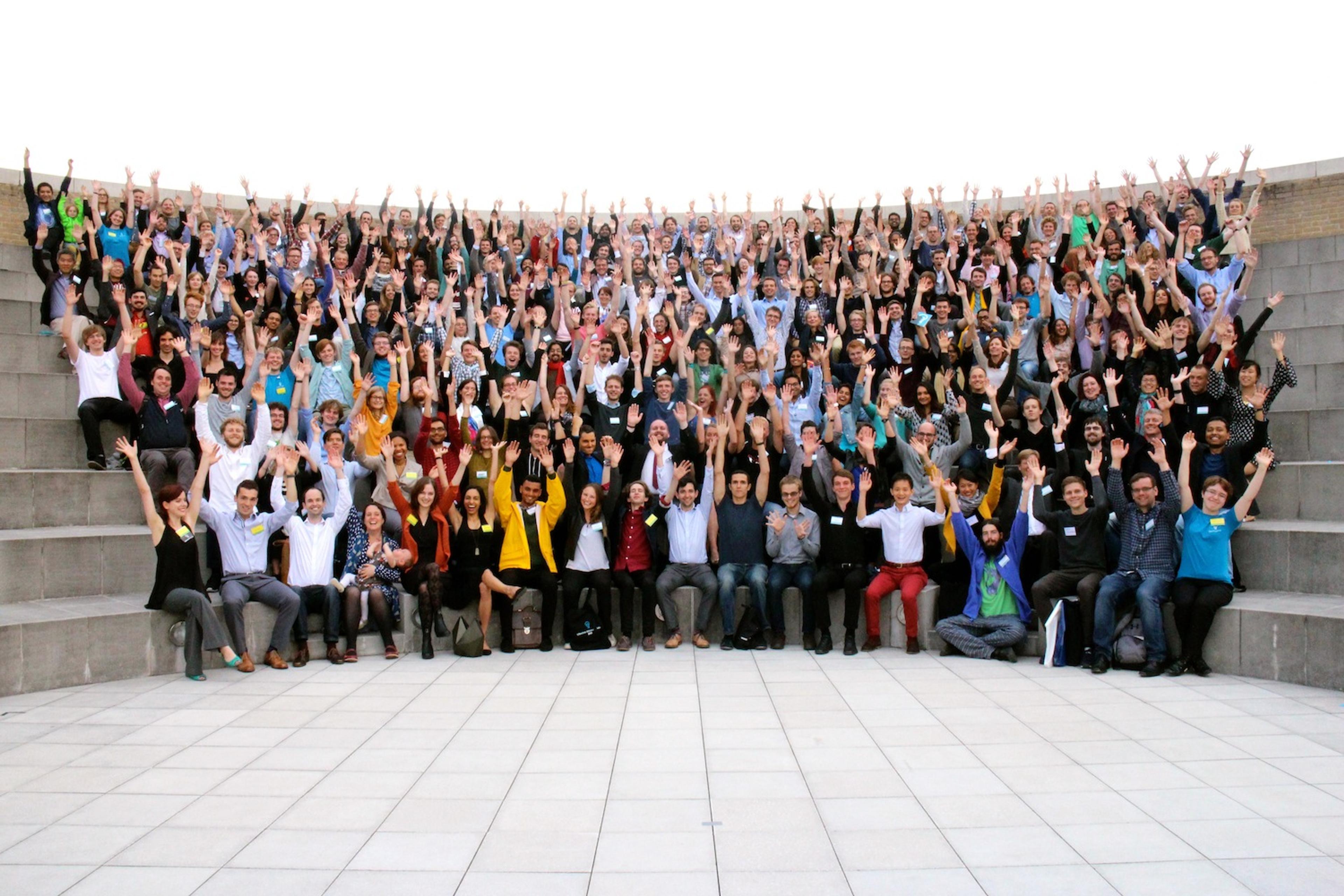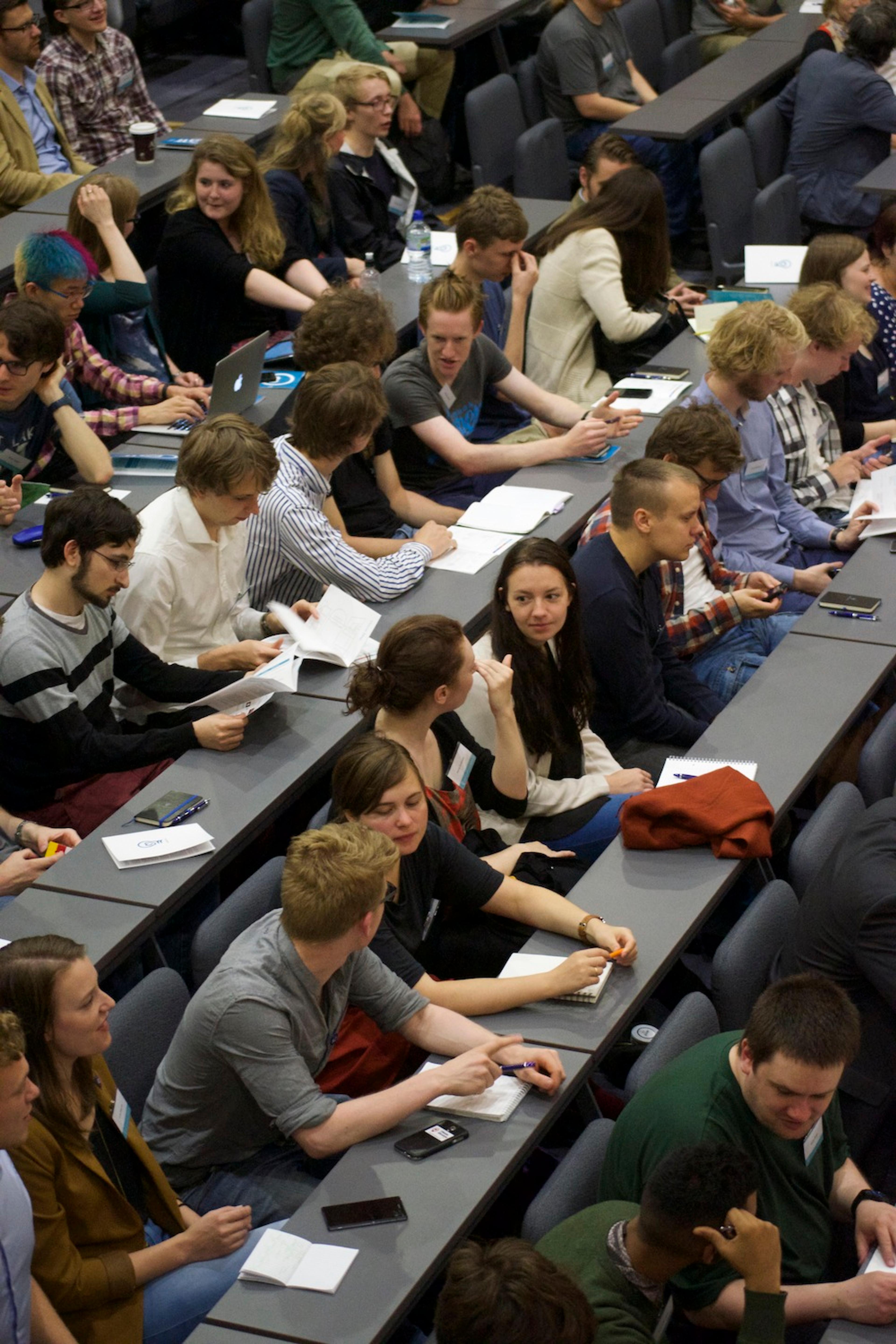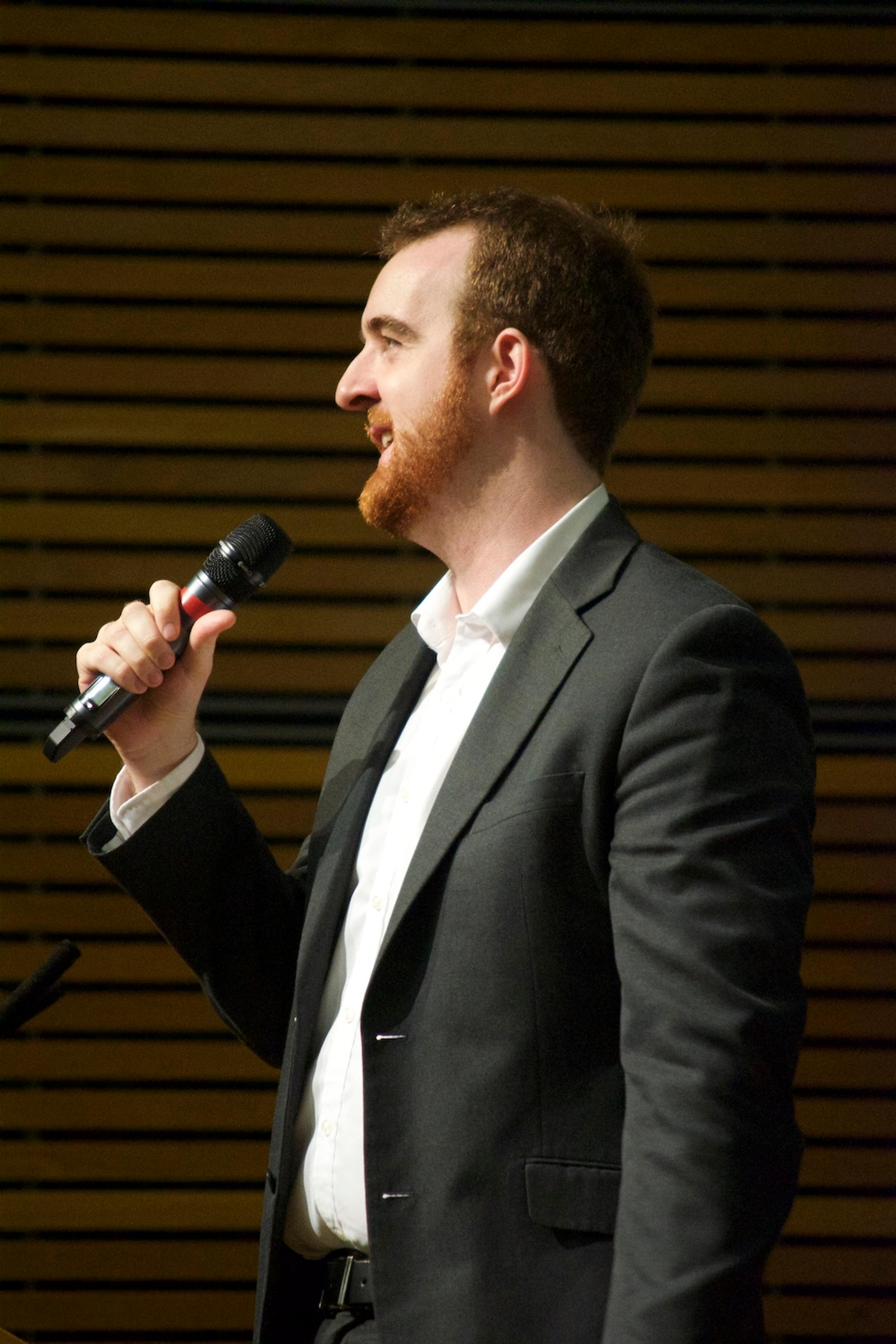EA Global Oxford: Figure out the most good you can do and then do it
Last weekend I attended the Effective Altruism Global conference in Oxford. This was the third in a series that saw events in Melbourne and at the Googleplex in California. These events were the biggest in Effective Altruism’s short history.
Even a week later my mind is still buzzing with all of the fascinating things I learnt, my inbox and Facebook feed are going crazy with messages from the great people I met and I’m trying to keep up with all the exciting projects I could make a difference in.
This means I could probably write at least another ten blog posts based around things I got out of the conference. But today I want to share with you a simple yet powerful message. If you care about helping others and making a positive impact in the world then what you need to do is quite straightforward.
Figure out how to do the most good in the world you possibly can.
Then do it.

All photos by Lauryn Vaughan of [Not Purple. Creative](https://www.facebook.com/notpurple23)
Figuring out who we should help
Alleviating suffering
Michelle Hutchinson, the Executive Director of Giving What We Can, provided the perfect opening to the conference by summarising the simple assumptions that bring us all together.
- We want to help people.
- We want to help people more, not less.
- And when we say help people we mean anyone and everyone.
This means we expand the circle of people and issues we care about until we realise that everyone, all around the world has similar hopes and fears.
Michelle shared a personal story. I will do the same.
I’ve had a lot of experiences with cancer in my family. We’re very fortunate that my mum survived breast cancer, although it was hardly easy and I’m not sure I was much help being a sullen teenager at the time. My dad has had a scare and my grandad died of cancer a few years ago. So I have taken part in several fundraisers to beat cancer; night walks around London, my first 5k, bake sales and many more.
What I eventually came to realise however is that it’s not the cancer in of itself that is the evil here, it’s the suffering and loss. Strokes can cause heartache and pain. So can malaria. So can starvation.
I don’t want the people I care about to suffer any of these.
I would only wish to swap one condition for another in any of my loved ones if I thought it would bring them less pain and keep us together longer. So now I try to just tackle as much suffering I can. I raise to beat suffering and loss in whatever form.
Having had this realisation it didn’t take me long to realise if I cared this much about my mum, other people probably care just as much for their mothers. And for their fathers, brothers, sisters, grandparents, children and friends. People everywhere, from the north of the UK suffering from leukemia to in a village in Malawi fighting against malaria. They all care and feel this pain just like I do. So I want to help them, whoever or wherever they are.
For many people, myself included, this also extends to animals. Many studies have shown the intelligence of animals and even without that we can certainly see that animals can suffer much as newborn babies can, so we should worry about their suffering too. One thing that I was impressed by at the conference was that there was such an emphasis on vegetarian and vegan food because so many people there cared about animal welfare. Never before have I been to a conference where the organisers felt the need to put a note to say they were sorry that the biscuits were not vegan – and I’m an event coordinator, I go to a lot of conferences!
It was lovely to be at an event where everyone wanted to help as many people and animals as they could, as much as they could.
So how can we do that?
Using reason, conducting research and analysing statistics.
Figuring it out where we can help most
Thinking it through

The more we understand what causes these and many other problems the more we can do to help. This means we need to measure impact, look at statistics and explore areas no one else is looking at.
Toby Ord gave a fascinating example. Research has demonstrated how effective antiretroviral drugs are in tackling HIV Aids. But in terms of preventing deaths from the disease, promoting the use of condoms is many times more effective. And, thinking again of wanting to prevent suffering rather than any one disease, we can save many more lives again by tackling malaria. Treating malaria providing anti-mosquito bed nets through the Against Malaria Foundation is the best intervention we have found.
So we can use research and scientific reasoning to help more people, to figure out how to do as much good as possible.
Reason doesn’t just help us identify the most effective causes but also biases in our own thinking that might cause to focus more on evidence that supports our existing viewpoints.
To help us with finding these things out there were some really interesting workshops at the conference run by the Centre for Applied Rationality on how to find biases in your own thinking and how to better understand very different points of view. One workshop I particularly enjoyed was learning to argue from an opposing point of view to see where you might be wrong.
One stand out message of the conference was the importance of humility.
Changing your mind just means you’ve learnt something new. When you think like this it is easier to learn and be accepting of others.
Figuring it out, together
Shared community and acceptance was a really powerful feeling of the conference for me. In many ways the people there were very different. People from countries, working in very different areas (from computer engineers based in the USA to health workers working in the global south) and focusing on different causes (from animal welfare to helping people become more rational). All united in trying to do the most good possible.
Unfortunately I will say a more general diversity was still lacking. The audience was predominantly white collar, white males between the ages of 18 and 30. This was an open topic of discussion at the conference. Particularly, does this lead to biased optimism on things like getting into politics or running start ups?
That said, the atmosphere was very supportive and inclusive. Although the the sessions were intense, it felt like a very safe space. Everyone was on your side.
The conference had the strange feel of a group interview day - but much more friendly. On the one hand I met lots of people, many of whom were hiring into Effective Altruism organisations, looking to collaborate on new projects or giving advice on how to make an impact. And yet instead of pushing personal skills and hoarding contacts, everyone was sharing tips and contacts, and offering to volunteer to support promising ideas.
For me this community feeling was optimised by the lovely delegation from Norway letting me crash with them when I missed the last train to where I was staying one night. I think I was too engaged in discussing how to make an impact through politics and learning about the latest developments in computer science!
Figuring out how to help
Find your impact
Figuring out how to do the most good doesn’t stop with finding a more effective cause.
Maybe you can help find the most effective ways of treating malaria. Or maybe you can come up with a model of how to stop diseases spreading through populations.
Maybe you can influence governments to put more money into research or into tackling malaria or into building the health infrastructure needed in the countries where malaria is prevalent.
Or maybe you can persuade more people of the amazing impact they can have on so many people’s lives if they just think about how to do the most good. Maybe you persuade some people to fund anti-malaria bednets, some people who can influence government policy and some who can research how to do all of these things even more effectively.

I attended a fantastic workshop with Giving What We Can’s own Jonathan Courtney, Director of Outreach, where I collaborated with people from around the world who run local groups. We try to reach out to people in our own towns and cities so that we can discuss together how we can do the most good and then support each other in doing it.
See if there's a group near you or start one of your own.
This is one of the ways I feel that I, personally, can make an impact.
How about you?
Doing it
Once you've worked out what cause area you can have the biggest impact in and how, it's just a case of doing it.
Here are some suggestions of things to do after the conference, whether you attended or not. And here you can find small steps anyone can take to get started.
One of my big learns was you don't need to have all the answers now. Don't stall on doing something good because you're not sure it's the best thing. You learn by doing. Get out there and do.
At EA Global Oxford one powerful session was an EA hamming session. A hamming session simply challenges an individual to answer the question: : what would be the most impactful thing you could do in your field?
And then once you have an answer you get the question; “Okay, so why aren't you doing that?”
It’s quite a powerful question.
We then brainstormed all the things we would like to do. All the things we could do that would make a difference. We made a list of obstacles and then worked through in pairs possible solutions to each one. From there we worked out what our plan was for at least the next few months and what we needed to make it happen.
What could you being doing? What are the next steps?
One of the suggestions from yet another powerful session, this one Daniel Ariely's talk on self control was to make a pact with someone to do something.
I've made a pact with a lovely person I met at EA Global, to reach out to someone with experience working in effective non-profit organisations. This will help me identify whether I would be a good fit for that kind of role and what skills I might be missing. From there I can plan ways to get additional experience.
I have high hopes that the things that I have learnt at the EA Global conference will stay with me for a long time. I have learnt about a wider range of causes that are worth supporting, I met some lovely, brilliant people and gained the tools and renewed excitement to go out and make as much difference as I can.
What's your next step in figuring out how to do the most good and then doing it?
Whether you're figuring it out, or taking the next step on your plan. Just do it.
Let's make a pact together to do the most good we can.